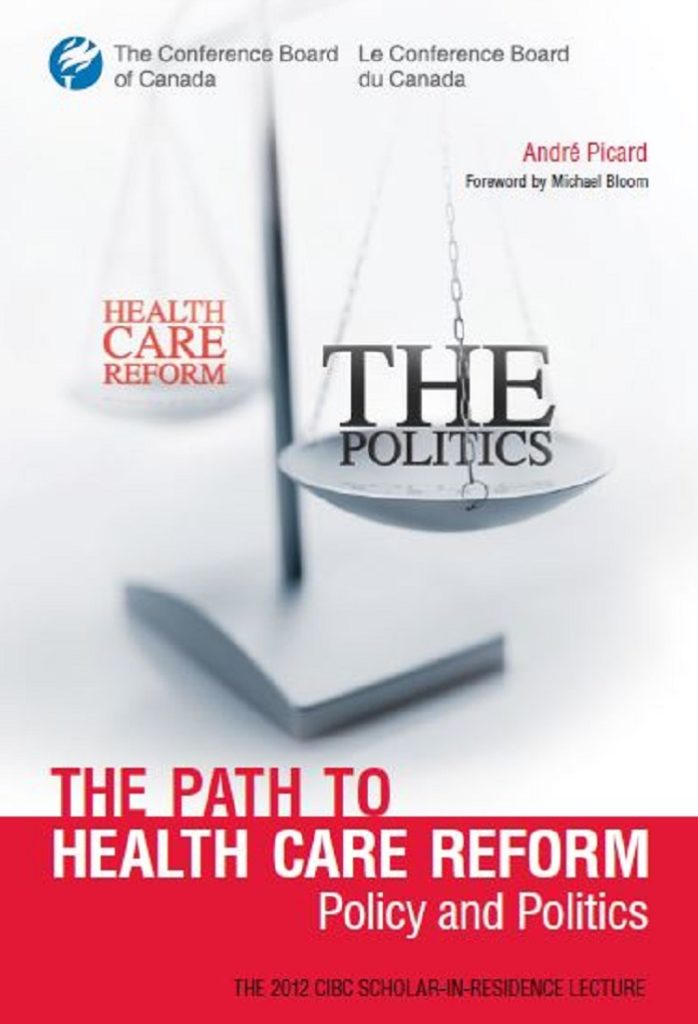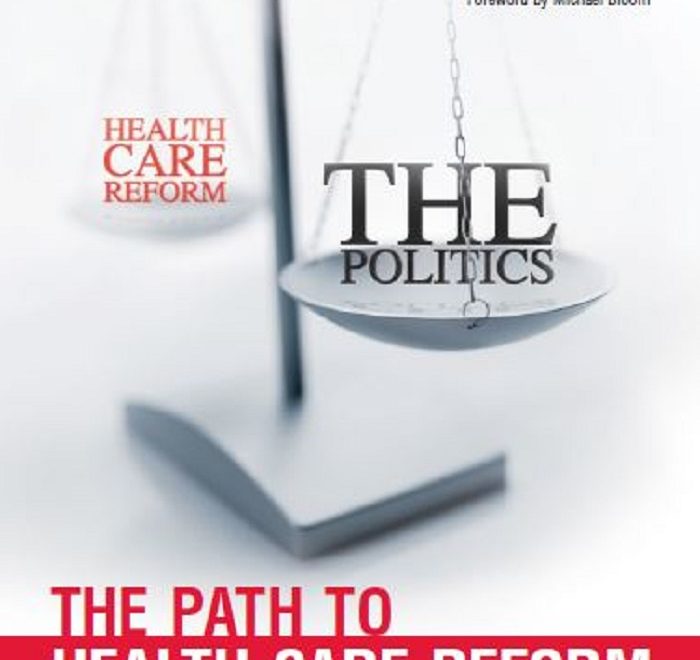This blog isn’t about book reviews, but when I read something that strikes me I reserve the right to share it here! In that vein (if you’ll pardon the medical pun), I’ve just finished reading a book which highlights several points I’ve been talking about for years; in terms of bioethics at a societal level.
Although this book is about healthcare in Canada, it contrasts this country against several others. So even if you live elsewhere, there may be something in this work for you as well.
To start off, a bit about the author. André Picard is my favorite healthcare journalist, and is also Canadian; he’s been with the Globe and Mail for over 25 years now. He provides not only measured and rational coverage of the ‘latest and greatest’ medical and scientific breakthroughs, but also – and arguably more importantly – of healthcare policy.
He “is one of the top health writers in Canada and has carved a reputation as a noted public policy expert. Throughout his career, he has written on everything from the sustainability of the health-care system to the need for a national mental health strategy to developments in medical science”. (1)
If you haven’t guessed from the title of this post, the book in question is his recently-published “The Path to Health Care Reform: Policy and Politics”. As noted in its introduction, most Canadians view “our health care system as being at the core of our national values… a defining element in the character of our country”. (2)

Despite that, the only point that we seem to able to agree on, from coast to coast to coast, is that our healthcare systems need help. My use of the plural of ‘system’ isn’t an error; it’s because we don’t have a single healthcare system in Canada.
As I’ve often said of clinical research ethics, and of patient privacy protection; instead of any kind of blanket coverage or system, we have a patchwork so badly sewn together that it’s constantly in danger of coming apart at the seams. And occasionally parts of it do completely fall apart, or become badly frayed.
To those of you outside Canada, and perhaps to some within it, this country is something of an anomaly. At a governmental level, we’re a constitutional monarchy. Sounds interesting, but you may be wondering what that means. I’ll use an example that should immediately elucidate this concept for American readers. In the US, the Commander in Chief of the military is the President; in Canada, the Commander-in-chief of our Armed Forces is Queen Elizabeth II.
As an aside, I actually have proof of this in my own home! Many years ago, I was an officer in the Canadian Air Force; my officer’s commission was signed by Governor General of Canada, in right of (i.e. on behalf of) the Queen.
Another bit of Canadian trivia; as the Queen can’t be here on a daily basis, a Governor General is appointed to be her representative in Canada. And for each of our 10 provinces (although not for our territories), a Lieutenant Governor is appointed as the Queen’s representative. These posts are technically indefinite, but usually last a few years.
How did Canada end up as a constitutional monarchy? “Since 1534, when the King of France claimed possession of what is now Canada, the history of our country has been marked by the reigns of an uninterrupted succession of monarchs, both French and British, who have had a significant influence on our country’s development.” (3)
Why I have seemingly diverged into the ‘ancient history’ of Canada? Because much as we’ve somewhat fallen into our odd system of government, we’ve also fallen into our odd systems of healthcare. We initiated these regional systems to address specific sets of issues, and have been adding to them piecemeal ever since.
In my view, the single most important statement about healthcare policy in this work appears in its introduction: “we seemingly never step back and ask the most basic question of all: What are we trying to achieve?” (2)
Unfortunately, until we answer that question – at either the provincial and territorial levels or at the national level – I doubt that we’ll ever make any meaningful improvements or progress in our patchwork of healthcare systems.
Another area in which this book aligns with my bioethics view is that of what’s been termed the ‘social determinants of health’; “other factors matter a lot more to health than medical care does. They include income, education, housing, and the environment – factors that require investment in social programs and some redistributive taxation”. (2)
The other finding of this book that I’d like to highlight is that we have to stop comparing ourselves to our nearest neighbour, the US. So many other countries are more appropriate comparators for Canadian healthcare than the US, yet we so often end up with inappropriate comparisons such as these:
Canada’s “population health measures – from childhood mortality to life expectancy – rank better than those in the U.S., virtually across the board”, despite the fact that healthcare “spending is, per capita, about 50 per cent higher in the U.S.” (2)
The number of uninsured Americans exceeds, by far, the entire population of Canada” (2)
Health care bills are the number one cause of bankruptcy in the U.S., a phenomenon that is essentially unknown in Canada” (2)
Want to know more? Read the book; it’s well worth the time!
References:
(1) Weeks, Carly. The Globe and Mail’s André Picard named recipient of Queen Elizabeth II Diamond Medal. The Globe and Mail. 03 Feb 2013. Web:
https://beta.theglobeandmail.com/life/health-and-fitness/health/the-globe-and-mails-andre-picard-named-recipient-of-queen-elizabeth-ii-diamond-medal/article8353770/?ref=http://www.theglobeandmail.com&
(2) Picard, André. The Path to Health Care Reform: Policy and Politics. The Conference Board of Canada. Oct 2013. Print and Web:
http://www.conferenceboard.ca/e-library/abstract.aspx?did=5863&AspxAutoDetectCookieSupport=1
(3) Canada: A Constitutional Monarchy. The Senate of Canada. Accessed 29 Dec 2013. Web:
https://sencanada.ca/en/about/brochure/monarchy/SenMonarchy_00-e

